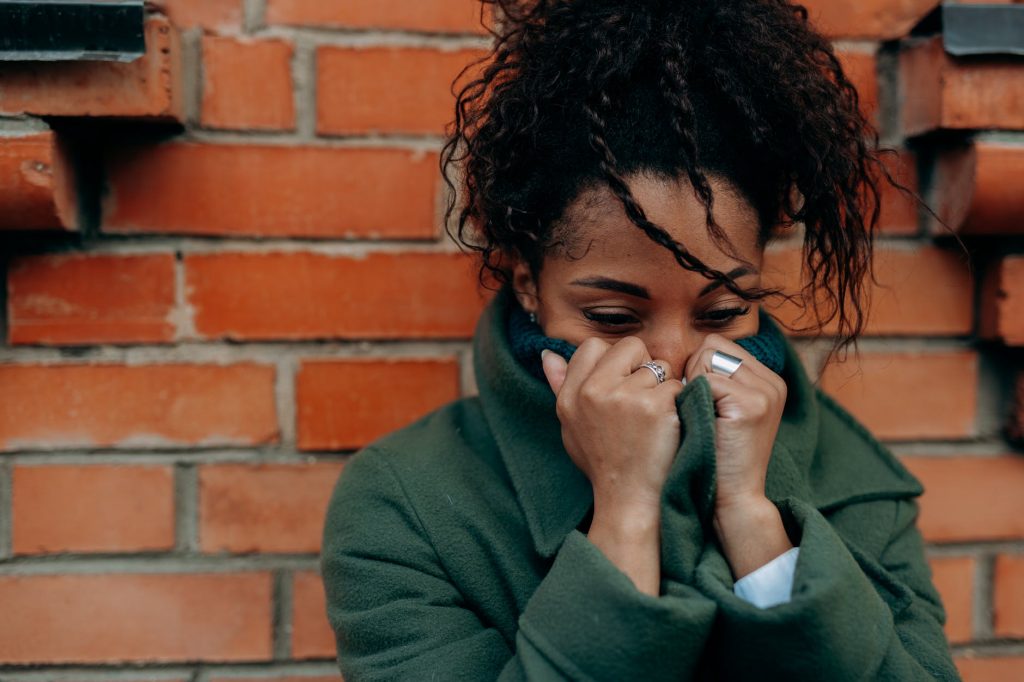Trypophobia… The Fear of Holes

Does the sight of a honeycomb, sponges, or holes make you shaky and sick to your stomach? Do you feel discomfort and an urge to destroy it? You could have trypophobia, a fear of holes.
According to Healthline, Trypophobia is a fear or disgust of closely packed holes. People who have it feel queasy when looking at surfaces that have small holes gathered close together.
Disclaimer: This article is meant for educational purposes only. Do not use information in this or any other article to self-diagnose or diagnose other people. If you feel that you or someone close to you may possess some of the characteristics mentioned in this or any other article on our blog and need help then please, consult a licensed mental health professional. This article is not a substitute for professional advice, but for general guidance.
Triggers
Not much is known about trypophobia. But common triggers include things like:
- lotus seed pods
- honeycombs
- strawberries
- Coral
- sponges
- sea sponges
- water condensation
- pomegranates
- bubbles
- clusters of eyes as found in insects
- aluminum metal foam
- condensation
- cantaloupe
- Holes or pebbles in concrete
- Air holes in a slice of bread
- Patterns in the frosting of a cake or pie
- The holes in an old hockey mask
- Skin problems like sores, scars, and spots
- Spotted animals
- Showerheads
- LEDs in traffic lights
Symptoms
- feelings of disgust, fear, or discomfort at the sight of the above-mentioned triggers.
- goosebumps
- skin itching
- skin crawling
- sweating
- nausea
- panic attack
- Shortness of breath
- A fast heartbeat
- Shiver
- Feeling anxious, full of dread, or fearful
- Feeling as if you are going crazy
- Have an urge to destroy the holes
- Feeling like crying
- Vomiting
*Animals, including, insects, amphibians, mammals, and other creatures that have spotted skin or fur, can also trigger symptoms of trypophobia.
Research studies
According to Healthline, “Researchers don’t agree on whether or not to classify trypophobia as a real phobia. One of the first studies trusted Source on trypophobia, published in 2013, suggested that the phobia may be an extension of a biological fear of harmful things. The researchers found that symptoms were triggered by high-contrast colors in a certain graphic arrangement. They argue that people affected by trypophobia were subconsciously associating harmless items, like lotus seed pods, with dangerous animals, such as the blue-ringed octopus.
A study trusted Source published in April 2017 disputes these findings. Researchers surveyed preschoolers to confirm whether the fear upon seeing an image with small holes is based on a fear of dangerous animals or a response to visual traits. Their results suggest that people who experience trypophobia don’t have a nonconscious fear of venomous creatures. Instead, the fear is triggered by the creature’s appearance.”
The “Diagnostic and Statistical Manual,” (DSM-5) of the American Psychiatric Association does not accept trypophobia as an official phobia. More research is required to fully comprehend the full scope of trypophobia and its causes.
Self-help strategies
Self-help treatments can be done alone or with the assistance of a therapist or counselor.
Individual phobias may or may not respond well to these strategies, which have varying success rates.
The following are some self-help strategies:
- Lifestyle modifications: these include; exercise, eating healthy meals, proper sleep hygiene, and avoiding caffeine and other stimulants.
- Cognitive behavioral therapy (CBT): This is a type of talking therapy in which you work with a therapist or counselor to figure out how your thoughts influence your feelings and behavior. Clients are encouraged to develop and attain goals by therapists.
- Self-help group: Many people find group therapy to be extremely beneficial.
- Exposure therapy (desensitization): This is a treatment method in which a therapist exposes a person to their phobia in small doses.
- Relaxation techniques: This may include exercise-based techniques and visualization methods.
Trypophobia isn’t an officially recognized phobia. Some researchers have found evidence that it exists in some form and has real symptoms that can impact a person’s everyday life if they’re exposed to triggers.
If you think that you might have trypophobia, visit a doctor or a counselor. They can assist you in identifying the source of your anxiety and managing your symptoms.
References;
Annamarya Scaccia (September 12, 2019 ). Everything You Should Know About Trypophobia. Retrieved May 20, 2021, from
https://www.healthline.com/health/trypophobia
Geoff G Cole, Arnold J Wilkins (August 27, 2013). Fear of holes. Retrieved May 20, 2021, from
https://pubmed.ncbi.nlm.nih.gov/23982244/
Wang Can, Zhao Zhuoran, Jin Zheng (January 18, 2017). Is Trypophobia a Phobia? Retrieved May 20, 2021, from
https://pubmed.ncbi.nlm.nih.gov/28558623/
Jennifer Casarella, MD (June 22, 2020). Trypophobia. Retrieved May 20, 2021, from
https://www.webmd.com/anxiety-panic/trypophobia-overview
Lori Smith, BSN, MSN, CRNP (January 4, 2018). Is trypophobia real? Trypophobia. Retrieved May 20, 2021, fromhttps://www.medicalnewstoday.com/articles/320512




A great read as well as informative!